Merchant Ivory: Interview with Filmmaker Stephen Soucy
- Elizabeth Gracen

- Nov 5, 2024
- 10 min read
Updated: Nov 14, 2024
By Elizabeth Gracen

All filmmaking is an arduous journey, full of ups and downs, green lights for production, and the inevitable unexpected twists that can bring film development and production to a halt. Sometimes the actors drop out. Sometimes there is a change of director. Sometimes that golden goose that holds the purse strings for the film’s financing has a change of heart and flies away. If that happens, the project is either shelved or the process begins all over again.
If you happen to be an independent filmmaker, creating your passion project on a shoestring—or thread of a shoestring—budget, the process is even more daunting. If you just so happen to be an independent documentary filmmaker . . . it’s a whole new game, where you must be willing to wrestle the nebulous forces necessary to create a massive puzzle from ever-shifting pieces. Passion, willpower, organizational skills, and a quiver full of persuasive arrows must be employed to bring your vision to fruition.

To talk to a documentary filmmaker fresh through the tunnel of this filmmaking journey is to enter into a conversation with an artist who is in love with the film they’ve created. There is a palpable energy bursting forth to share what they’ve learned about themselves, the process of making the film, and what inspired them about the film’s subject—the reason they began the journey in the first place. Such was the case when I sat down with filmmaker Stephen Soucy to talk about his terrific new documentary feature film, Merchant Ivory, released earlier this year and still available in select theatres. You can also catch it streaming on Amazon and iTunes beginning November 8 and on TCM starting in January of next year. You can also order a copy on DVD or Blu Ray.
MERCHANT IVORY (2023) is the first definitive feature documentary to lend new and compelling perspectives on the partnership, both professional and personal, of director James Ivory, producer Ismail Merchant and their primary associates, writer Ruth Prawer Jhabvala and composer Richard Robbins. Footage from more than fifty interviews, clips, and archival material gives voice to the family of actors and technicians who helped define Merchant Ivory’s Academy Award–winning work of consummate quality and intelligence. With six Oscar winners among the notable artists participating, these close and often long-term collaborators intimately detail the transformational cinematic creativity and personal and professional drama of the wandering company that left an indelible impact on film culture. — merchantivoryfilm.com
Told in an entertainingly classic documentary style, Soucy’s film is a comprehensive look at Merchant Ivory Productions and ventures deep into the professional and private lives of the director, producer, and life-partner team of James Ivory and Ismail Merchant. The film takes us behind the scenes of a fifty-year relationship that created the lush elevation of what we’ve come to know as classic costume drama and unfolds the complex lives and creative collaboration intrinsic to creating their impressive oeuvre of over forty films, most notably The Bostonians, Howard’s End, The Remains of the Day, A Room With a View, Maurice, and Mr. and Mrs. Bridge.
Soucy’s introduction to the films of Merchant Ivory began with what most people consider the quintessential period dramas: A Room With a View and Maurice. "Merchant Ivory started out making American-based, unusual, almost weird films in the 70s—like The Wild Party with Raquel Welch, which was shot in Riverside, California, and the little-known Savages, a bizarre film about the end of civilization in a big country home in upstate New York," said Soucy. "But they really found success in the 80s when they started to adapt novels with their long-time collaborator, the novelist and screenwriter Ruth Prawer Jhabvala. That’s when you start to see their well-known period pieces adapted from the work of Henry James and then E. M. Forster."
With costume design by Jenny Beavan and John Bright and the soaring scores of another long-time Merchant Ivory collaborator, Richard Robbins, what most people identify as the classic Merchant Ivory films were born. With extensive interviews with James Ivory, Soucy’s documentary weaves the fascinating story of independent filmmaking on a grand scale, enlisting an illustrious cast of actors such as Vanessa Redgrave, Helena Bonham Carter, Emma Thompson, and Hugh Grant to tell the tale.
Soucy’s passion project began with his short film Rich Atmosphere: The Music of Merchant Ivory Films. Narrated by James Ivory, the film is a tribute to Robbins' long-time contribution to twenty-one Merchant Ivory films. "The music was the thing that I always went back to over and over again. I bought all those soundtracks. Robbins was a genius. I wanted to make a documentary short film about it, so I interviewed James a couple of times and came up with this idea to make it an animated film. I worked with Jack Cunningham, who's based in London, to animate it. It took us about eight or nine months to make the film, because animation takes so long. I really loved it, but more importantly . . . James Ivory loved it."
Rich Atmosphere: The Music of Merchant Ivory Films
Sensing an opportunity, Soucy quickly formulated the idea of creating a definitive look at the entire Merchant Ivory body of work, and after nearly a two-year period of persistently pitching the idea of a feature-length documentary film to Ivory, he was finally given permission by the filmmaker to move forward. "Once he said yes, that's when the doors opened and I was able to schedule all of the interviews, go to London, and really start to move through the process," said Soucy. "I interviewed Jim maybe five times and did around 55 total interviews total for the film—the bulk of which took place in London. I also filmed in New York, Los Angeles, and I went to the Cinematheque in Paris and was able to film footage there during a big retrospective of Merchant Ivory films."
After deciding to anchor the documentary around the four big Merchant Ivory films of A Room With a View, Maurice, The Remains of the Day, and Howard’s End, Soucy began the challenging process of getting permission to use film clips to support the interviews. “For a documentary film, you hope that everything will be deemed fair use, but it’s complicated to get the necessary approvals. By the time you are ready to start the edit, there are a lot of restrictions that you have to navigate. You never get fair use of music. I think I used around forty-two pieces of Richard Robbins’ music, but I still didn’t have enough music. I ended up working with Richard Robbins–like composer named Ryan Homsey. So, between the music, getting the rights, the fair use lawyers, negotiating with the Cohen Media Group, and bringing the project to the end with my editor, Jon Hart, it took three and a half years to get it finished.”
More than anything else, Merchant Ivory reveals the tenacity required to envision and foster an idea through the precarious journey of bringing it to fruition on the big screen. Considering the rich, romantic grandeur of a Merchant Ivory film, it is quite the shock to realize that these opulent films were, for the most part, "independent" films. "I was always impressed by their work ethic," said Soucy. "They made almost a film a year. Jim always says that they always made the films they wanted to make, but they definitely skewed towards literary adaptations. That makes sense, because Ruth Jhabvala was a novelist first and foremost and a screenwriter second. She always felt like her screenplays were not her true work, and she's a two-time Academy Award–winning screenplay adaptation winner! Because of her love of Henry James and E. M. Forster, she’s the one who encouraged them to consider literary classics for film adaptation."
The weave of the Merchant Ivory collaborative power begins with Ivory as a documentary filmmaker in India. "Jim made two or three India-based documentary films, The Sword and the Flute and The Delhi Way. What is interesting is that if he hadn’t made those early Indian documentaries, he wouldn’t have met Ismail. Jim always gives Ismail the lion's share of credit for Merchant Ivory because Jim knows that he would not have been able to make the films if it wasn't for Ismail pounding on every door, getting the money and the budget in place, doing whatever it took."

In effectively tracking the ups and downs of the Merchant Ivory personal and professional relationship, Soucy follows the complicated lives of two gay men dedicated to their art in a world that demanded secrecy and a denial of their personal truths. Because Merchant was Indian Muslim from a conservative Muslim family, the couple never shared their relationship with Merchant’s family, nor was it publicized at large during their biggest successes. However, what is hidden finds the light through their art. During the height of the AIDS crisis, following on the heels of one of their most popular films, the filmmakers brought Maurice to life on screen. “A Room of With a View came out, and it was a global phenomenon. At that point, Jim knew that if he was going to do Maurice, it had to be in that moment. It was a ballsy move because of the subject matter . . . and because of the AIDS crisis. These are the days of Margaret Thatcher and Ronald Reagan . . . which I think echoes what's happening today with the Republican Party wanting to ban books and wanting to have all LGBT content erased. Back then, being gay had such a stigma attached to it because of the AIDS epidemic. Paul Bradley (Maurice) talks about it in the film. People would pull him aside and ask why Merchant Ivory were making such a film.”

Soucy describes Ivory’s belief that Maurice was the “other side of the coin” of A Room With a View. “Once again, it's what he wanted to do, and he felt like that kind of opportunity might not become available to him again. I think Maurice is the film that is the most impactful long-term out of the whole Merchant Ivory catalog of 43, 44 feature films under the production company. It is impactful and resonant, and I say that because people still come up to Jim at age 96, and they thank him. They tell him that the film changed their lives. I mean, it changed my life. I saw it on a VHS cassette tape on one of those small TVs. I was sitting in someone's apartment in Albany, New York, when I was in college and I put that film in and I was so moved by it because I was seeing my life on screen. It was so profound for me because it had a happy ending—these two men finding each other. And the implication at the end is that they will go live together. It really was something that helped a lot of gay men in the 80s and then through the 90s and beyond. Somebody told me that in my film that Remains of the Day is the jewel in the crown of Merchant Ivory, and it is. It's a spectacular film, and I think that Howard’s End is a spectacular film, but I have to say that the most resonant, the most hard-hitting kind of message film is really Maurice.”
Needless to say, Maurice did not find the worldwide success of A Room With a View, but Merchant Ivory continued to experiment, dabbling in the contemporary with an adaptation of Tama Janowitz's Slaves of New York before returning to the literary adaptations most associated with their work.

Soucy is quick to admit that his tenacity in finding his film’s final home at Cohen Media Group after an almost four-year trajectory from beginning to end comes from his career in business, academic publishing, and as a theatre producer (Romy and Michele: The Musical). Coming up against film financing obstacles all along the way, Soucy ended up self-financing the film with a post-production assist from James Ivory himself. Quickly realizing that Cohen Media owned an extensive catalog of Merchant Ivory films, he pitched the documentary as a vital addition to their library that could serve as an integral link to help the company sell their Merchant Ivory backlist.
“Now the film is being programmed all over the place, whether it's film festivals or theatrically. But in addition to that, theaters are taking Merchant Ivory films and doing retrospectives. It was just a no-brainer for me. I was like, the only place for my film was with Cohen Media Group.”
In turn, Soucy’s film has reignited interest in the Merchant Ivory body of work and in James Ivory himself. As the oldest Academy Award winner for his screenplay of Luca Guadagnino’s film Call Me By Your Name, Ivory is enjoying his third-act, well-deserved appreciation.

"For me, as the director of this documentary, the most important thing is that I want Jim to be happy with the film. People and reviewers will come away with whatever they come away with, but for me, it was about pleasing Jim—making him happy. And he is happy. And he loves it. And for him, it's given him this resurgence. He likes supporting the film. He and I are off to Mexico this coming weekend for the Morelia Film Festival, and then the last hurrah for the film is our theatrical release in the UK on December 6th, which is being run by Curzon Cinemas. There's so much Merchant Ivory history at this particular theater, including Ismail Merchant. His memorial service was held there after he passed away in 2005. They did the main memorial service in India, but then all the Merchant Ivory family came together at Curzon Mayfair. Emma Thompson's on stage, and everybody's giving their tribute to Ismail. So, I'm super excited that Jim will be back in that space. It's been a gift to see him be so happy—for him to be able to soak in that appreciation and know how much impact he's had on people's lives. It has been a wonderful experience.”


Stephen Soucy is a film director at Modernist Film and produces theater via Stephen Soucy Productions. His feature documentary film, Merchant Ivory, is executive produced by Academy Award–winning director and screenwriter James Ivory and Charles S. Cohen. Merchant Ivory will be released theatrically and distributed worldwide by Cohen Media Group. Stephen is co-lead producer of the West End and Broadway-bound Romy and Michele: The Musical. His next film projects include Reggie Rose, a short adapted from a story by David Ebershoff, and the independent feature Orientation based on an original screenplay.
Elizabeth Gracen is the owner of Flapper Press & Flapper Films.








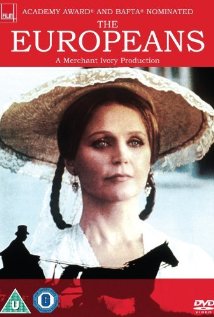

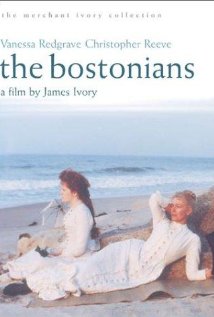

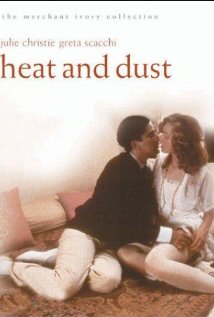





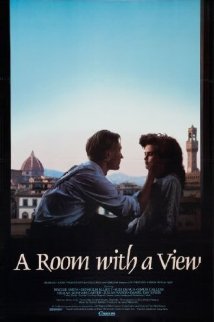



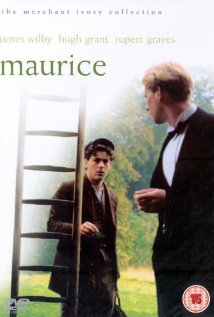

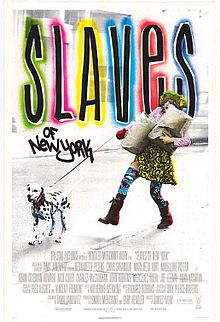



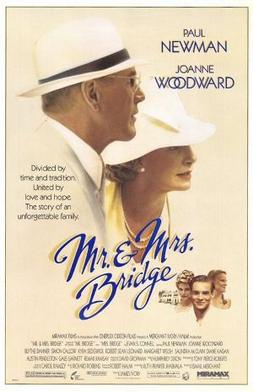
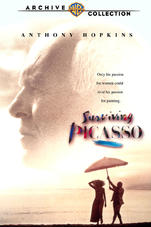



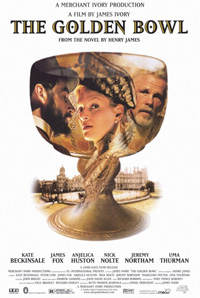

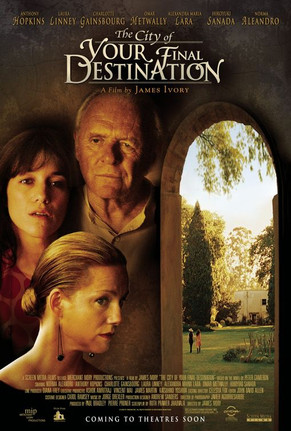

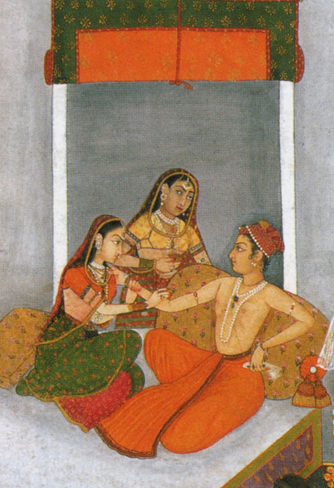

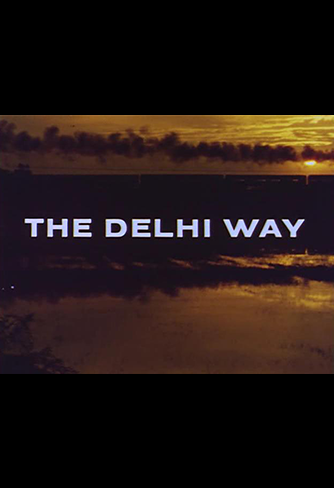


Comments